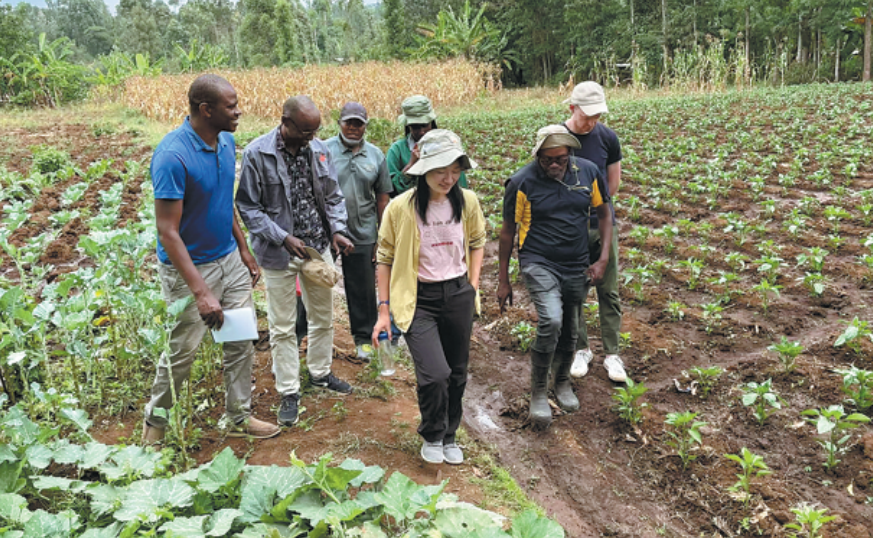By Staff writer

China has significantly bolstered agricultural development across Africa through a series of strategic initiatives aimed at enhancing food security, improving crop yields, and fostering economic growth. These efforts encompass technology transfer, infrastructure development, and capacity building, resulting in transformative impacts on the continent’s agricultural landscape.
Agricultural Technology Demonstration Centers (ATDCs)
Since 2006, China has established 24 ATDCs in 24 African countries. These centers serve as hubs for disseminating advanced agricultural technologies and practices. For instance, the introduction of hybrid rice varieties has led to yield increases of over 20% compared to local strains. Similarly, cassava varieties introduced by Chinese institutions have quadrupled yields, substantially enhancing food security.
The Juncao project exemplifies China’s commitment to sustainable agricultural practices. In Rwanda, Leonidas Mushimiyimana established a mushroom cultivation workshop utilizing Juncao technology, producing up to 30,000 mushroom tubes monthly and creating employment for dozens. This initiative has benefited over 4,000 Rwandan farmers, generating more than 30,000 jobs along the agricultural value chain.
China’s “Go Out” policy has led to substantial investments in African agriculture. In Uganda, Chinese experts have been instrumental in planning agribusiness projects, with over 40 agricultural scientists involved since 2012. These collaborations have enhanced local agricultural practices and productivity.
Chinese enterprises have invested in extensive agricultural projects across Africa. Examples include the Wanbao Rice Farm in Mozambique and the China-Zambia Friendship Farm, covering 630 hectares. These farms not only boost local food production but also provide employment opportunities, exemplifying China’s focus on “small and beautiful projects” that are both impactful and sustainable.
At the Forum on China-Africa Cooperation Summit in 2024, President Xi Jinping announced a $51 billion financial support package for Africa over the next three years. This funding aims to improve infrastructure and create at least one million jobs, with a significant portion allocated to agricultural development, reflecting China’s dedication to supporting Africa’s agricultural modernization.
China’s agricultural initiatives have led to tangible improvements in Africa’s food production capabilities. The introduction of high-yield crop varieties and modern farming techniques has increased productivity, while infrastructure projects have enhanced market access and economic opportunities for farmers. Looking ahead, China plans to further support Africa’s agricultural modernization by establishing additional centers for agricultural technology exchange and training, aiming to train 1,000 agricultural science and management personnel by 2026.
These collaborative efforts underscore China’s role as a pivotal partner in Africa’s quest for food security and agricultural advancement, contributing to the continent’s broader goals of economic development and poverty reduction.
 Africa -China Review Africa -China Cooperation and Transformation
Africa -China Review Africa -China Cooperation and Transformation
